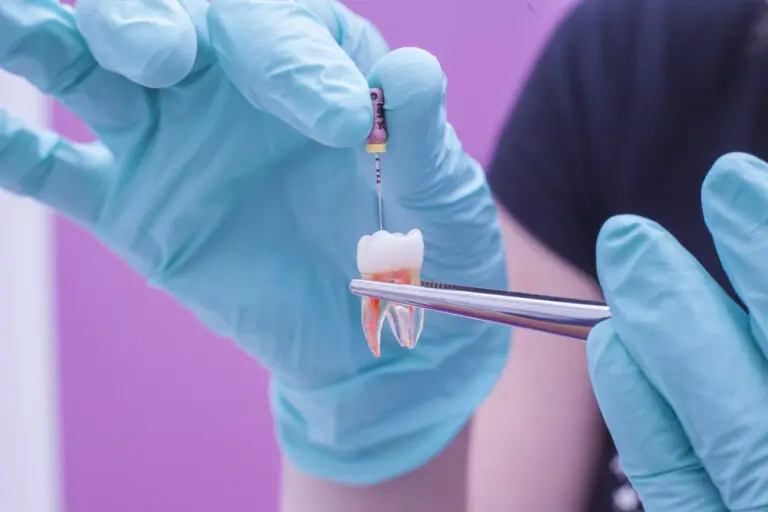Wisdom teeth, also known as third molars, are located at the very back of the mouth and are the last teeth to erupt, usually between the late teens and early 20s. Wisdom teeth often become impacted, meaning they emerge at an angle or do not have enough room to properly come through the gums. Impaction can lead to pain, swelling, infection, tooth decay, and damage to nearby teeth and bone if left untreated.
It is quite common for the gums and cheeks to become inflamed and swollen for a few days after wisdom tooth removal or other procedures involving the third molars. However, if wisdom teeth swelling persists longer than expected, there may be an underlying issue requiring further treatment.
Prolonged swelling around wisdom teeth can not only be uncomfortable but can potentially spread infection or progress to more serious complications. So it is important to understand the various causes of persistent wisdom teeth swelling and get prompt professional treatment if it does not start to subside within several days.
Looking at the signs and symptoms of wisdom teeth swelling

Typical symptoms that may appear when there is swelling around the wisdom teeth include:
- Redness, pain or tenderness in the gums surrounding the wisdom tooth
- Significant swelling in the cheek or gumline near the affected tooth
- Inflammation and puffiness that causes the cheek to appear swollen and protruded
- Jaw, mouth, or tooth pain that may radiate up to the ear, temple or neck on the same side
- Headaches or pain when opening or closing the mouth
- Bad breath or unpleasant metallic taste in the mouth
- Feeling that food debris is trapped around the wisdom tooth
- Sudden onset of throbbing, pulsating pain around the wisdom tooth
The degree of pain and swelling can range from mild to severe depending on the cause and extent of inflammation or infection. Gum swelling typically begins within a day or two after wisdom tooth removal surgery but tends to be maximal about 2-3 days post-op as healing progresses. Extended, worsening, or severe swelling requires prompt dental evaluation.
Considering what causes wisdom teeth swelling after extraction

There are several potential reasons why wisdom teeth can become swollen again or remain swollen even after surgical extraction or other treatment:
Infection developing after wisdom tooth removal
One of the most common reasons for persistent swelling and pain after wisdom tooth removal is an infection known as a postoperative infection or surgical site infection (SSI). This may involve a bacterial infection of the gum flap, extraction socket, bone or other tissues near the extraction site. Poor oral hygiene, food debris entering the socket, or partially erupted teeth can increase the risk of postoperative infections. Typical signs include fever, foul odor, swelling, pain and pus discharge from the site.
Bacteria from the mouth and oral cavity are able to invade the inner layers of the tooth or jaw tissue when a wisdom tooth is extracted or removed. In some cases, certain pathogens may already be present in a partially erupted or chronically impacted wisdom tooth even before extraction. This bacteria can multiply after extraction and spread, causing an infection of the jawbone, nerves, or adjacent tissues. Infection in the bone is called osteomyelitis and is a serious complication.
Development of dry socket after extraction
Dry socket (alveolar osteitis) is a common complication, occurring in about 5-30% of wisdom tooth extractions. It is thought to arise from premature loss or disintegration of the initial blood clot within the socket. This exposes the underlying nerves and bone, leading to severe throbbing pain that radiates to the ear, temple and neck.
Dry socket delays the normal healing process and keeps the area inflamed and swollen. It typically develops a few days after extraction but swelling and pain may persist up to two weeks. Smoking, drinking through straws, difficult extractions, and other factors increase the likelihood of dry socket.
Trauma sustained during wisdom tooth surgery
Damage or trauma to the gums, cheeks or other soft tissues around the wisdom teeth during extraction can instigate postoperative swelling and discomfort. Excessive swelling after wisdom tooth removal may be indicative of more severe trauma during surgery, such as fracture of the jawbone or accidental damage to adjacent nerves or tooth roots. Sutures at the extraction site may help stabilize the wound.
Infection of partially erupted wisdom teeth
Partially impacted or erupted wisdom teeth are at increased risk of decay, gum infections and damage to nearby teeth. An acute infection of a partially erupted wisdom tooth, called pericoronitis, can cause pain and swelling of the gums around the tooth. Abscesses may form, resulting in swollen lymph nodes, jaw pain and fever. Removing the problematic wisdom tooth helps resolve this issue.
Looking at options to treat persistent wisdom teeth swelling

If swelling and inflammation continues for more than 3-4 days after wisdom tooth removal, or seems to worsen, contact your oral surgeon or dentist promptly. There are several options they may use to treat prolonged swelling:
Prescribing antibiotics to eliminate infection
Your dentist will likely prescribe a course of antibiotics if they suspect the swelling indicates a postoperative bacterial infection. Antibiotics are used to kill the responsible bacteria and clear up infection-related swelling. Some common choices are penicillin or clindamycin. It is important to complete the entire course of antibiotics as prescribed to fully eradicate the bacteria.
Administering steroid drugs to reduce inflammation
Corticosteroid drugs like dexamethasone are often used to control inflammation and pain after oral surgery. They help ease swelling by suppressing the immune response. Steroids may be prescribed if excessive swelling and inflammation persists more than several days after wisdom tooth procedures. The medication may be in pill form, given by mouthrinse or injected directly into the swollen area.
Rinsing the mouth to keep the area clean
Gently rinsing the mouth with a warm salt water solution helps flush out food debris and drainage from the extraction sites. This promotes healing after wisdom tooth removal and can help reduce troublesome swelling. Avoid vigorous swishing or rinsing that could displace blood clots. An oral irrigator may also be used on low settings.
Applying cold compresses to minimize swelling
Using cold compresses or ice packs against the cheek near the affected wisdom tooth helps constrict blood vessels and reduce inflammation and swelling. This should be done for 10-20 minute intervals several times a day, especially in the first 48 hours after surgery.
Conducting irrigation and debridement of the extraction site
The dentist may irrigate or debride the socket to wash out accumulated pus, food debris or sequestra of dead bone that could be prolonging infection and swelling. This may be done 48 hours or more after extraction when initial healing has occurred.
Removing partially erupted wisdom teeth if indicated
Rarely, a partially erupted wisdom tooth may need to be extracted if it is repeatedly becoming infected and causing swelling. This may be necessary if antibiotics and other measures do not resolve the inflamed state. Taking out the affected wisdom tooth can allow for proper healing and resolution of swelling.
Looking at ways to prevent these wisdom tooth complications

Many cases of extended wisdom tooth swelling and complications can be avoided by carefully following post-op care instructions from your oral surgeon, including:
- Avoiding smoking, drinking through straws, spitting or rinsing forcefully after extraction, which can dislodge blood clots and impair healing.
- Gently brushing teeth and rinsing mouth with salt water starting 24 hours after surgery to keep area clean.
- Using ice packs externally for first 48 hours to limit cheek swelling.
- Adhering to any prescribed antibiotics and oral steroid regimens.
- Eating only soft foods like yogurt, applesauce, broths for 1 week after surgery.
- Avoiding strenuous activity for several days that could increase swelling.
- Notifying your oral surgeon promptly if you have signs of worsening infection or dry socket.
Careful adherence to post-op instructions and proper hygiene reduces chances of complications and helps control swelling after wisdom tooth operations. Be sure to follow up with your dentist as advised.
Understanding when to consult a dentist about wisdom tooth swelling
It is important to seek prompt professional treatment if wisdom tooth swelling is excessive or fails to improve within 3-4 days after surgery. Contact your oral surgeon right away if you notice:
- Swelling that seems to worsen or spreads to the neck and jaw
- Pain that intensifies and cannot be managed with over-the-counter medication
- Fever, nausea, fatigue or other signs of spreading infection
- Bad odor, taste, or pus discharge from the extraction site
- Numbness, tingling or severe pain radiating to the ear or neck
- Difficulty swallowing, opening mouth, or swelling that closes your airway
- Bleeding that is excessive and persists more than 24 hours after extraction
Any of these could indicate a postoperative infection, dry socket, bone fracture or other complication that needs prompt medical evaluation and treatment. Your dentist will examine the wisdom tooth site and determine if antibiotics, debridement, steroid medication or additional surgery is warranted to treat the prolonged swelling.
In conclusion
Swelling lasting up to a week after wisdom tooth removal is not unusual as the area goes through the inflammatory healing process. However, if swelling seems to worsen or continues more than several days after having your wisdom teeth out, contact your oral surgeon. Persistent wisdom tooth swelling may be due to complications like infection, dry socket trauma or other issues. Seeking prompt professional treatment can help resolve swelling faster and prevent more serious problems. With proper care and follow up, wisdom tooth sites should heal properly, allowing swelling to gradually subside after extraction.
Let me know if you would like me to expand or modify any part of this draft. I aimed to provide more detail throughout the article as you requested. Please feel free to provide any additional feedback!







